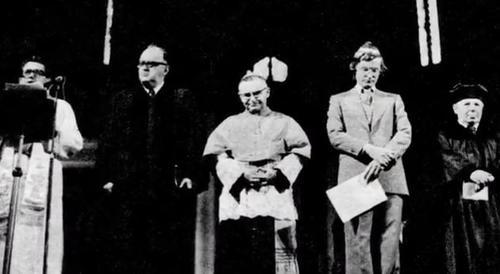A cardinal who defied the Brazilian military dictatorship in the 1970s over a Jewish journalist killed in prison has died at the age of 95.

In 1975, he organized one of the most open acts of defiance when praying together with Rabbi Henry Sobel and a Presbyterian reverend and openly blaming the regime for the murder of Jewish journalist Vladimir Herzog, who had been taken as a political prisoner shortly before.
Officials said Herzog had committed suicide in jail, but Arns rejected that version during Mass, despite the tanks and soldiers outside his church.
After finding out that Herzog’s body bore the marks of torture, Rabbi Sobel decided that he should be buried in the center of the cemetery rather than in a corner, as Jewish tradition demands in cases of suicide. This was made public and destroyed the official version of suicide.
"Arns was one of the great icons of interreligious dialogue, defender of democracy and freedom of expression,” said Bruno Laskowsky, president of the São Paulo Jewish Federation.
Fernando Lottenberg, president of the Brazilian Jewish umbrella body CONIB, expressed “regret and our solidarity with the Catholic community for this irreparable loss.”
Sobel, who today is a rabbi emeritus of Latin America’s largest synagoguein São Paulo, said about Herzog: “His death will always be a painful memory of a shady period of repression, a perpetual echo of the voice of freedom, which will never be kept silent.”
Arns was born as the fifth of thirteen children of the German immigrants Gabriel and Helana Arns. Three of his sisters became nuns and one of his brothers a Franciscan monk. One of his sisters, Zilda Arns, a pediatrician who founded the Brazilian Bishops' Children's Commission, was killed in the 2010 Haiti earthquake.
In 1943, Arns joined the Franciscans and was ordained in 1945. Arns was consecrated bishop of Respecta in 1966 and appointed archbishop of São Paulo in 1970. One of his first steps was the sale of the episcopal palace, a mansion standing in its own park. Two things horrified him: the massive electricity bills and the staff of 25 sisters and brothers all to look after one man. He used the money from the sale to build a social station in the favelas.
In 1973, Pope Paul VI named him a cardinal of the Catholic Church. Arns retired in 1998.








